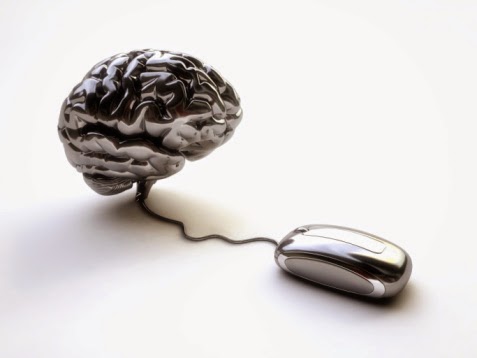Neuroscience

Post compiled by Christian Jarrett (@psych_writer) for the BPS Research Digest.
- Link Feast
In case you missed them - 10 of the best psychology and neuroscience links from the past week: 1. The pre-registration debate has kicked off. Sophie Scott wrote an article this week for Times Higher on why she is opposed to the idea of planned psychology...
- Link Feast
In case you missed them - 10 of the best psychology links from the past week (or so): 1. Atlantic published a truly dazzling long-form feature about anaesthesia and consciousness, including instances when people wake during surgery, and the on-going attempts...
- Feast
Our round-up of the latest juicy titbits in the world of psychology: All week long BBC Radio 3 has been running a series of programmes "The Darkest Hour" on insomnia. The latest issue of the American Psychological Association's monthly mag, Monitor,...
- Feast
Our round-up of the latest juicy tit-bits from the world of psychology: The Greenfield saga continues. Recall that Baroness Susan Greenfield recently restated to New Scientist her fears that technology is harming children's brains, and that Professor...
- Upcoming Event: 06 October 2008, Stockholm
From the Nobel Prize website: Announcement of the Nobel Prize in Physiology or Medicine The names of the year's Nobel Laureates in Physiology or Medicine are announced during a press conference at the Nobel Forum, Karolinska Institutet in Stockholm....
Neuroscience
Link feast

Our pick of the best psychology and neuroscience links from the past week or so:
The Struggles of a Psychologist Studying Self-Control
Maria Konnikova profiles her former mentor Walter Mischel - the creator of the famous Marshmallow Experiments - who has published his first pop psychology book at age 84.
Violent Video Games Research: Consensus or Confusion?
A new paper claims that there's a consensus among experts that violent media cause aggression in children. At the Guardian Head Quarters blog, Pete Etchells and Chris Chambers criticise both the findings of the paper and the editorial processes that led to its publication.
How The Brain Navigates: Science Nobel Prize Special – Podcast
The three joint winners of this year's Nobel Prize in Physiology or Medicine appeared as guests on the Guardian Science Weekly podcast.
Buy Experiences, Not Things
James Hamblin at the Atlantic looks into the latest research that suggests we're happier anticipating purchased experiences than material goods.
The End to Awkward Handshakes
By understanding the cultural background to different forms of greeting we can better anticipate when to go for the fist bump, bro hug or even a standard handshake, says the Crew Blog.
The Level Playing Field
The idea of "levelling" - adjusting reading material to suit each child's ability - has come in for criticism lately, says Annie Murphy Paul at the Atlantic, but a new online programme could provide a way to offer the benefits of levelling, while also keeping children sufficiently challenged.
Our Campaign Goes On, Despite Threats From Psychic Sally Morgan's Team
Find out what happened when sceptic Mark Tilbrook handed out fliers at a psychic event, encouraging people to think about the clues that might distinguish between someone with supernatural powers and someone who just appears to have them.
The Use and Abuse of the Prefix Neuro- In The Decades of the BRAIN
The Neurocritic presents highlights from a paper charting the rising of "neuro-ization".
The Psychology of Torture
It's more helpful to think of Milgram's shock experiments as a work of art, than as science, says Malcolm Harris at Aeon magazine. That way, they "can tell us about much more than obedience to authority; they speak to memory, trauma, repetition, the foundations of post-war social thought, and the role of science in modernity."
What One Neuroscientist Has Learned About the Lonely Brain
An interview with John Cacioppo, one of the world's leading experts on loneliness.
_________________________________Post compiled by Christian Jarrett (@psych_writer) for the BPS Research Digest.
- Link Feast
In case you missed them - 10 of the best psychology and neuroscience links from the past week: 1. The pre-registration debate has kicked off. Sophie Scott wrote an article this week for Times Higher on why she is opposed to the idea of planned psychology...
- Link Feast
In case you missed them - 10 of the best psychology links from the past week (or so): 1. Atlantic published a truly dazzling long-form feature about anaesthesia and consciousness, including instances when people wake during surgery, and the on-going attempts...
- Feast
Our round-up of the latest juicy titbits in the world of psychology: All week long BBC Radio 3 has been running a series of programmes "The Darkest Hour" on insomnia. The latest issue of the American Psychological Association's monthly mag, Monitor,...
- Feast
Our round-up of the latest juicy tit-bits from the world of psychology: The Greenfield saga continues. Recall that Baroness Susan Greenfield recently restated to New Scientist her fears that technology is harming children's brains, and that Professor...
- Upcoming Event: 06 October 2008, Stockholm
From the Nobel Prize website: Announcement of the Nobel Prize in Physiology or Medicine The names of the year's Nobel Laureates in Physiology or Medicine are announced during a press conference at the Nobel Forum, Karolinska Institutet in Stockholm....
